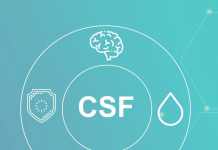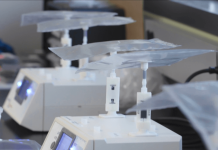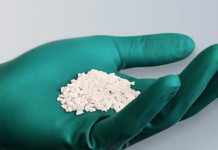Hyperfine has presented positive interim data from the ACTION PMR study, demonstrating that its magnetic resonance brain imaging (MRI) Swoop system offers faster time-to-scan compared to conventional MRI, along with good specificity in emergency stroke care.
At the European Society of Neuroradiology (ESNR) Annual Meeting in Paris, France, Hyperfine revealed data that the Swoop system outperformed conventional MRI in speed, with a median time-to-scan of 2.5 hours compared to 27.7 hours.
Related: DermaSensor’s skin cancer detection device helps clinicians in published study
The results also showed that Swoop is reliable for diagnosing acute stroke, offering diagnostic performance comparable to head computed tomography (CT), and good specificity when compared to routine clinical MRI.
This study included a subset of patients from Phase I of the ACTION PMR study, which compared stroke detection between ultra-low-field MRI (Swoop system), conventional high-field MRI, and CT. The study also assessed the integration of the Swoop system into the emergency departments and stroke centres.
US-based Hyperfine’s AI-powered system can be transported on wheels and easily moved through standard doorways and elevators. It can be wheeled directly to the patient’s bedside, plugged into a standard wall outlet, and controlled through a wireless tablet.
According to Hyperfine, Swoop is the world’s first portable MRI system to be approved by the US Food and Drug Administration (FDA). The system received a European CE mark last year and is approved in other countries, including the UK, Australia, New Zealand, and Canada.
Hyperfine’s medical affairs vice president Edmond Knopp said: “Being at ESNR in Paris this year and showcasing our Swoop system, we witnessed the growing interest and enthusiasm across the European neuroradiology community. Their [the research team’s] findings highlight the potential of the Swoop system’s clinical impact in improving stroke diagnosis and treatment.”
In 2021, Hyperfine secured $90m in an oversubscribed Series D funding round supported by GV (formally Google Ventures), Nextrans, Axiom, and others. The company said that it would use the funds to scale up the commercial expansion of Swoop and to fast-track AI and machine learning developments. In May 2024, the company entered into agreements with three distributors in the UK, France, and Italy to expand into European markets.
The company is also evaluating the use of the Swoop system in Alzheimer’s patients receiving amyloid-targeting therapy and in children with neurological injuries.




